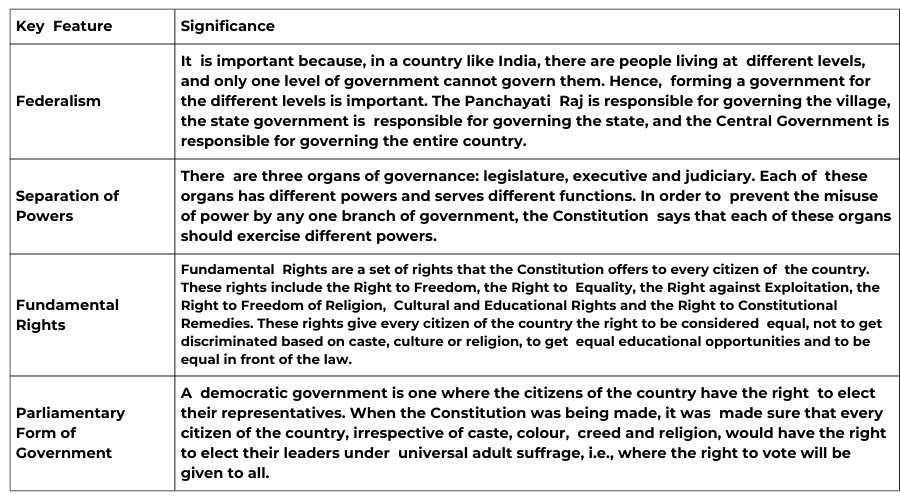Answer The Following Question.
1. Why does a democratic country need a Constitution?
Ans : There are various reasons why a democratic country needs a Constitution.
The basic ideals on the basis of which we as citizens aspire to live in our country are mentioned in the Constitution.
It tells the fundamental nature of society
To define the nature of the political system of the country.
It states a set of rules based on which people belonging to different religions and communities can peacefully co-exist with each other.
2. Look at the wordings of the two documents given below. The first column is from the 1990 Nepal Constitution. The second column is from the more recent Constitution of Nepal.

3. What is the difference in who exercises ‘Executive Power’ in the above two Constitutions of Nepal?
Ans : In the 1990 Constitution of Nepal (Article 35), the executive power was vested in the King and the ministers appointed under him. The King had the authority to rule, set rules, and manage the country.
In the 2015 Constitution of Nepal (Article 75), the executive power is vested in the government and is exercised by the Council of Ministers under the leadership of the Prime Minister. The governance is based on the Constitution and laws, with the supervision of the Ministers, rather than the King.
4. What would happen if there were no restrictions on the power of elected representatives?
Ans : Without restrictions on the power of elected representatives, there is a risk that they could misuse their authority for personal or political gain, undermining democracy. This could lead to authoritarian rule, corruption, and the violation of citizens’ rights. Therefore, constitutional measures and checks are necessary to prevent misuse of power and protect the interests of all citizens.
5. In each of the following situations, identify the minority. Write one reason why you think it is important to respect the views of the minority in each of these situations.
(a) In a school with 30 teachers, 20 of them are male.
Ans : The minority here are the 10 female teachers. It is important to respect their views to ensure that decisions made in the school environment are inclusive and that gender equality is upheld. Their perspectives may be different due to their experiences, and disregarding them could create an unfair or uncomfortable environment for them.
(b) In a city, 5 per cent of the population are Buddhists.
Ans : The minority here is the 5 per cent Buddhist population. It is important to respect their views to maintain religious harmony and ensure their rights are protected. Disrespecting their beliefs could lead to discrimination and social unrest.
(c) In a factory mess for all employees, 80 per cent are vegetarians.
Ans : The minority here are the 20 per cent non-vegetarian employees. It is important to cater to their dietary preferences and needs as well, ensuring that the factory mess provides options for both vegetarians and non-vegetarians, promoting inclusivity and fairness.
(d) In a class of 50 students, 40 belong to more well-off families.
Ans : The minority here are the 10 students from less well-off families. It is important to respect their views and provide equal opportunities, ensuring that they do not feel marginalized or left out due to financial constraints. Their needs and concerns should be addressed to promote an inclusive educational environment.
6. The column on the left lists some of the key features of the Indian Constitution. In the other columns, write two sentences, in your own words, on why you think this feature is important.

